The armed forces of Syria on the eve and during the uprising in the republic (2011 — 2013)
* * *
The armed forces occupy a special place in the life of Syria, being, along with the Arab Socialist Renaissance Party (PASV, Baath), one of the pillars of the ruling regime. Virtually all changes of power in Syria, until Hafez Assad came to power, took the form of military coups, and it was such a coup that brought power to the city in 1963 PASV. The "Baathist" character of the army is underlined by the existence in it of 1971 of the extensive structure of the PASV political bodies headed by political workers, created after the Soviet model.
By the time the organized armed insurgency began in Syria (approximately January 2012), the strength of the armed forces of the Syrian Arab Republic, according to the most authoritative Western sources, was over 294 thousand people. Of these, more than 200 thousands were in the ground forces, 90 thousands - in the Air Force and Air Defense (including 54 thousands in the command of the air defense), and 3200 and - as part of the small Navy of the country.
Picking is carried out mainly on conscription for a period of up to 24-30 months, and from March 2011 on 18 months. The armed forces have a significant number of reservists, the number of which was estimated to 352 thousand people, of which up to 280 thousand - in the ground forces.
With the 1956, the Syrian military system was built with the dominant influence of the experience of Soviet military construction, with the pressure of Soviet doctrines and methods of organization and combat use, and the armed forces themselves are equipped almost exclusively with Soviet-made equipment and weapons. In essence, the Syrian armed forces remained a “fragment” of the Soviet military organization of the most conservative persuasion, retaining many of its characteristic features (such as a massive mobilization army requiring additional deployment and mobilization for full-scale hostilities). Given the peculiarities of the Arab mentality, the general underdevelopment of the country and the lack of resources, many of the traditional defects of this Soviet military system, manifested in the USSR, in modern Syrian conditions are critical and are one of the causes of erosion of the armed forces of the SAR during the civil war.
The composition and strength of the sun SAR
The composition of the ground forces with a peacetime strength of more than 200 thousand people included the control of three army corps, three mechanized divisions, seven armored divisions, a special forces division (special forces, special forces), the Republican Guard armored division, four separate infantry brigades, two separate anti-tank brigades, two separate separate artillery brigades, separate tank regiment, 10 artillery regiments, artillery regiment of the Republican Guard, 10 special purpose regiments, three operational tactical missile brigades, border guard brigades.
In addition, there were reserve components, including a reserve armored division and up to 30 separate reserve infantry regiments (on the basis of which, in wartime, the deployment of two motorized infantry divisions and a significant number of separate infantry brigades were assumed).
The organization of army divisions approximately corresponded to the organization of the divisions of the Soviet Army 1970-1980-s, with the only difference that divisional regiments are called brigades in Syria. Each armored division includes three tank brigades, one mechanized brigade and one artillery regiment. In each mechanized division there are two tank brigades, two mechanized brigades, one artillery regiment.
For many years, the main goal of Syrian ground forces was to defend the direction of the Golan Heights - Damascus in the event of an Israeli attack. The main ground forces grouping (in particular, all 12 regular divisions) was concentrated in the southern part of the country in the areas immediately adjacent to the cease-fire line with Israel. After concluding an armistice agreement with Israel dated May 1974, Syria may have soldiers and officers in 0-10 km from the cease-fire line to 6000, 75 tanks and 36 guns in caliber to 122 mm inclusive. In the 10-20 zone, there are no restrictions on the number of personnel, and as for equipment, there can be up to 450 tanks and 163 artillery pieces. Between the Golan Heights and Damascus, the Syrians built three lines of defense (the first in 10 km from the ceasefire line), including field and long-term fortifications, minefields and impregnated tanks and guns, a large number of anti-tank systems. At the same time, already from 2011, the army was forced first to take part in suppressing riots and fighting banditry, and from January 2012 to engage in intense clashes with guerrilla guerrillas.
Air force
The Syrian Air Force and Air Defense Command includes the Air Force itself and Air Defense Command. The organization of the Air Force is a kind of “mix” of the Soviet and British system. Air Force Command has two aviation divisions (fighter and fighter-bomber) and five separate aviation brigades (transport, electronic warfare and two helicopter). The main part is the air base (23), the command of which is subordinated to the air squadrons (which can be reduced to air brigades). In total, at the beginning of 2012, the Syrian Air Force identified 46 squadrons (20 fighter, seven fighter-bomber, one electronic warfare, four transport, 13 helicopter and one naval helicopter) and five training air groups (11 squadrons). Training of personnel is carried out at the Air Force Academy.
Judging by the available Western data, on paper, the number of Syrian air forces is still superior to aviation groups of neighboring states, including Israel and Egypt. However, the overwhelming majority of the Syrian aviation fleet is outdated and is not able to withstand the air forces of potential enemies. The most modern Syrian aircraft (up to hundreds of MiG-29 and Su-24) were released in 1980-s. and since then have not been upgraded. More than 30 MiG-25 fighters launched in the 1970-ies, are currently probably not sky-ready. A significant part of the aircraft fleet still consists of MiG-21МФ / bis fighters of early 1970-s, the squadrons of which were defeated during their last collision with the Israeli Air Force in 1982. Several important programs for the purchase of new combat aircraft and the modernization of old with the participation of Russia were frozen or canceled.
In addition to the general obsolescence of the air fleet, there is a negative underfunding of the armed forces on the combat readiness of the country's air force, resulting in a lack of spare parts and fuel. According to Western estimates, the average flying time of fighter aviation pilots is 20-25 hours per year, which is not enough to maintain flight and combat qualifications. Proof of the low combat capability of the Syrian air force is the constant invasion of the Israeli Air Force aircraft into the airspace of the country, including the famous demonstrative flyby over the palace of President Al-Assad. The culmination was the operation "Orchard", conducted in 2007, during which Israeli F-15I and F-16I fighters destroyed a nuclear reactor in Deir ez-Zor in eastern Syria, without meeting any resistance from Syrian aviation.
It should be noted that since the arrival of the Ba'ath Party in 1963, the Syrian air force has been central to the structure of the Syrian government. Air Force officers under the leadership of Hafez Asad, led the coup that brought the Ba'ath Party to power. Coming from the Air Force, Assad relied on his former colleagues, who formed the backbone of the service. Since then, the Air Force began to play a special role in the life of the country. Air Force Intelligence (the Air Force Intelligence Directorate) is traditionally one of the leading intelligence services in Syria, and in the early stages of the Syrian uprising coordinated actions on land against the opposition forces. From 2009, the Air Force Prospector was headed by Major General Jamil Hassan, by alavite by religion, who was part of Bashar al-Assad’s inner circle. At the end of April 2011, HRV officers used tear gas and live ammunition to disperse crowds of demonstrators who took to the streets in Damascus and other cities after midday prayers. In May, 2011, the European Union, announced it was banning travel to Europe and freezing the assets of General Hassan for participating in repression against the civilian population. In August, 2012, Mr. Hassan, was killed by militants of the Free Syrian Army.
As the conflict escalated, the role of the Air Force began to grow. The main objective of aviation was to assist in the transfer of troops and air strikes against the positions of the rebels, some of whom were qualified by the opposition and the Western media as massacres of civilians. As the political situation worsened, the Air Force military personnel began to be drawn into the implementation of a growing number of ethically controversial tasks, and the pressure on the Air Force increased.
Defense
The Air Defense Command is organized in the Soviet centralized pattern. The territory of Syria is divided into the North and South zones of air defense. To control the forces and means of air defense there are three automated command posts.
The basis of the Syrian air defense forces are anti-aircraft missile units, combined in 25 brigades and two separate regiments. From 25, the 11 anti-aircraft missile brigades are mixed on C-75 and C-125M complexes, 11 brigades are equipped with self-propelled 2K12 "Kvadrat" and "Buk-M2E" air defense missile systems, and three brigades with self-propelled short-range air defense systems ZNG9N.XN.X. (and, possibly, receive the PIR-C33 ZRPK). Both anti-aircraft missile regiment armed with long-range air defense systems C-1VE. Brigades are partly separate, and partly merged into two air defense divisions (200 and 24), subordinate to the commands of the South and North air defense zones. Officers for air defense forces are trained at the Air Defense College.
Due to the complete obsolescence of the overwhelming share of the material part of fire weapons, as well as insufficient training of personnel, the real combat potential of Syria’s air defense is now very low and in fact the Syrian air defense forces are unable to effectively protect the country’s territory from the actions of the modern enemy air forces. This was shown by repeated provocative overflights by Israeli aircraft of the Syrian territory, including Damascus, as well as the unpunished destruction of the Syrian nuclear facility by the Israeli air forces in 2007. The situation began to change from 2010 to the best for the Syrians when the Buk-M2 air defense system began to change. and ZRPK "Pantsir-C1", upgraded the air defense system C-125M, MANPADS "Igla-S". However, the number of new systems is clearly not enough, with the bulk of Syria’s air defense systems still remaining outdated and increasingly losing combat significance.
Navy
Syrian semi-naval forces retain mainly Soviet hardware 1960-1970's. and have extremely low potential. In recent years, the development of the Navy has been influenced by the Iranian doctrines of the “small war”, which resulted in the acquisition of small combat boats built by Iran and the DPRK. In fact, the main potential of the Navy is now the coastal defense brigade, which has received two divisions of the newest Russian supersonic anti-ship missile systems, Bastion-P, Iranian coastal anti-ship missile systems, and the Redut and Rubezh Soviet coastal missile systems.
Weapon mass destruction
Israeli sources believe that Syria is the owner of the largest arsenal of chemical weapons in the Middle East, believing that the Syrians are trying to give a kind of "answer" to the Israeli nuclear potential.
For the first time, the Syrian authorities officially recognized the presence in the country of chemical and biological weapons 23 July 2012.
The presence of chemical weapons is considered a deterrent against Israel, and is currently against possible aggression by Western countries. According to CIA estimates, Syria is able to produce sarin, herd, VX and mustard in the amount of up to several hundred tons per year, and has 5 factories for the production of toxic substances (in Safira, Hama, Homs, Lattakia and Palmyra). There are estimates by the Center for Strategic and International Studies on 2000 that the stocks of chemical weapons in Syria are up to 500 — 1000 t, among which are sarin, VX, and blister agents.
26 July 2007 an explosion occurred in a weapons depot near Aleppo, which killed at least 15 Syrians. The Syrian authorities said that the explosion was accidental and not related to chemical weapons, while the American magazine Jane's Defense Weekly suggested that the explosion occurred when Syrian soldiers tried to equip the R-17 rocket equipped with mustard gas.
The main means of delivering chemical weapons are the P-17 (Scud), Luna-M and Tochka (SS-21) operational tactical missile systems. Three missile brigades have 54 launchers and, presumably, up to 1 thousands of missiles.
* * *
The country's military industry is underdeveloped. It is mainly represented by enterprises for the production of ammunition and repair of military equipment, built in 1970-1980-s. with the help of the USSR and the countries of the socialist camp. This is due to the fact that previously all the weapons Syria received in abundance from the USSR.
Organization, goals and objectives
The supreme commander of the Syrian army is President Assad. He heads the country's highest military-political body - the National Security Council (SNB), which includes the ministers of defense and interior affairs, and heads of special services. If necessary, other members of the government and military leaders take part in meetings of the Council. The National Security Council develops the main directions of military policy and coordinates the activities of organizations and institutions related to the country's defense.
The military command system is extremely centralized and completely subordinated to the power of Assad. It is believed that the army is controlled very tightly, it is customary to execute orders "from and to". This has its pros and cons - well, this is useful if the enemy deprives some of the communications and control, but also leads to inertia and lack of flexibility in solving the tasks at hand.
The Secretary of Defense and Deputy Supreme Commander since July 2012 has been General Fahed Jassem Al-Freij.
Military planning and direct troop control are carried out by the General Staff. The Chief of the General Staff is the First Deputy Minister of Defense and the Commander of the Ground Forces. Since July 2012, this post has been occupied by Lieutenant General Ali Abdullah Ayub.
Previous Defense Minister Daoud Rajih and Chief of the General Staff Assef Shaukat were killed in the July 18 act of terrorism 2012.
The territory of the SAR is divided into seven military districts - coastal, northern, southern, eastern, western, south-western, central, capital.
The ground forces are grouped into three army corps; The main ones are 1 and 2, which are on the line of contact with Israel, and 3 is the auxiliary backup and was responsible for the maritime, Turkish and Iraqi directions. The 1 Army Corps included 5, 6, 8 and 9-I armored divisions and 7-I mechanized division. The 2 Army Corps included 1, 3, 11-I armored and 4 and 10-I mechanized divisions. In each of the buildings there are also separate parts - artillery regiments and special purpose shelves.
According to known data, the main role in ensuring internal security during the Arab Spring is played by the 5-I armored division, as well as the 4-I mechanized division, which is considered to be the elite and especially dedicated to Assad. The armored division of the Republican Guard, which is the military “Life Guard” of the regime, retains essential significance.
It is believed that the Syrian army is committed to positional defense tactics, and the mobility and ability to rapidly build up forces in the main direction at the moment is not its strong point.
In addition, the border with Turkey and Iraq was covered mainly by units of the 3 Army Corps — loose, consisting of reserve and cropped units, the core of which was the collapsed 2 Armored Division. As early as December 2011, it became known that the Turkish side, with the support of NATO specialists, was preparing for a massive penetration into Syrian territory of militant groups, including those deployed to Turkey by military transport aviation of an alliance of fighters from Libya. Most likely, the Syrian government forces cannot seriously prevent this infiltration, especially as instructors from NATO countries are engaged in organizing intelligence and communications of the partisans.
The available information about the Syrian armed forces suggests that the greatest importance was attached to the preparation of a powerful positional defense in the Golan region and a somehow trained reserve - apparently so that the Israeli army in the event of war would be deeply defended by significantly exceeding its ATS army , faced a powerful protest from Israeli society and made concessions without defeat from Syria.
An integral part of the anti-Israeli strategy was plans to transfer part of the armed forces (special purpose divisions) to Lebanon to organize sabotage operations from the territory of that country. The defense of the Turkish border was of secondary importance, and the defense of the extended border with Iraq was almost neglected (except for 1991, when Syria took a limited part in Operation Desert Shield).
From a formal point of view (the number and quantity of weapons), the Syrian army could have been considered one of the most powerful in the region by 2011. However, the lack of funding, the poor technical condition of a large part of the equipment, the evasion of citizens from military service led to the fact that by the beginning of the uprising the army of the country turned out to be largely sky-ready.
In addition, part of the weapons was lost to the Syrian army during the fighting. Given that all information about the losses of the armed forces during the fighting is completely closed by censorship, it is not possible to accurately estimate the actual number of weapons systems in service.
The country's military doctrine did not meet the new realities either. Preparations for the conduct of a full-scale war with Israel required the presence of large formations and a mobilization deployment. However, the conduct of mobilization would lead to a massive appearance in the army of people disloyal to the regime, would be a de facto recognition of the civil war, and therefore the leadership of Syria did not dare to take this step.
It is worth noting that the solution of problems of internal security was the responsibility of the law enforcement agencies and civilian intelligence services of the country, the General Directorate of Security and the Political Security Directorate of Syria. However, it is obvious that the special services did not cope with the tasks of preventing the financing of the opposition, the supply of weapons and explosives from abroad and the infiltration of militants, and the suppression of resistance went beyond their capabilities. Therefore, the army was forced in a short time to reorient itself to the solution of anti-sabotage tasks, sweeping the area, filtering the population, conducting police and punitive operations.
Previously, the possibility of using the army against the political opposition was provided for in the Constitution of the country. According to the 11 article of the 1964 constitution, the army was supposed to defend the ideas of Ba'athism and the revolutionary gains of the Syrian people. The same article gave the authorities legal grounds to use the army not only against an external enemy, but also inside Syria against the enemies of the revolution. At the same time, according to Article 8 of the Constitution, the Party of Arab Socialist Renaissance had a monopoly on the implementation of the ideas of the revolution. For the ideological treatment of the personnel of the armed forces, they operated an extensive system of political bodies, under the leadership of the Political Directorate of the Armed Forces established in 1971. As part of the constitutional reform of 2012 by the current President Bashar Assad, the article on the party’s leading role was canceled and, accordingly, the clauses on the role of the army as a defender of the ruling party were canceled. The political administration was disbanded, and its employees mainly joined the special services.
Personnel
The recruitment and quality of personnel training is presumed to be significantly affected by the chronic underfunding of the army.
The Syrian army - the draft, the service life was up to 2005 g. 30 months, then 24 months, and in 2011 g. It was reduced to 18 months. Presumably, such a populist measure may indicate not very great confidence in the army.
It is believed that the training of conscripts is poorly placed due to the insufficient material resources of Syria, first of all, fuel and ammunition, mainly they were trained in maintaining positional defense and carrying out garrison service. The populist measure to further reduce the service life exacerbated the problems of unskilled servicemen. At the same time, with the start of hostilities, the discussion of the quality of the draft army and the need to move to a contractual basis in the press was practically prohibited.
There is no reliable information about the moral and volitional qualities of the conscription army of Syria, since the press is forbidden to be interested in this topic.
Prior to the uprising in Syria, an extensive system of basic military training for conscription youth in secondary schools and universities operated. The sergeants were trained in special schools. At the same time, part of the sergeant posts was recruited at the expense of university graduates who, after graduation, were required to serve in the army.
It is known, however, that military service was unpopular, they tried to avoid it at the slightest opportunity, since most families live poor and there are no extra workers. At the same time, 1953 has a practice of paying off military service, which is widely used by more or less wealthy Syrians. And due to the general relatively favorable demographic situation in the country, there was no significant shortage of armed forces before the start of the revolutionary events.
On the whole, on the eve of the events, young people, like all of society, were especially inclined to be frustrated due to the unlighted state of the economy and the lack of a modernization program or at least fatherly charisma in the younger Assad.
Most likely, the quality of training and the level of morale can vary from part to part. It is believed that there is a separation between senior and junior officers - the former are more likely to perceive their careers as “business”, the latter are annoyed by the lack of prospects and a demonstrative disregard on the part of the authorities.
All this is not new and very rooted, as evidenced by the pace of reforms begun in the early nineties and still continuing with varying success. The reform was initiated by Hafez Asad, whose goal was to achieve loyalty to the army of the younger Assad. The current president has continued reforms, aiming at modernizing the system, but the lack of financial resources and the rootedness of the “old guard” and its orders in the army greatly reduce the effectiveness of the reforms - it is possible that almost to zero.
The training of officers for the Armed Forces of Syria is carried out by two military academies: the Higher Military Academy in Damascus and the Military Technical Academy. H. Assad in Aleppo, as well as military colleges: infantry, tank, field artillery, military air, naval, air defense, communications, engineering, chemical, artillery weapons, electronic warfare, rear, political, military police. In addition, there is a female college for the training of female officers. However, with the beginning of the uprising, the training of officers was largely paralyzed.
The most prepared units are the Special Forces and the Republican Guard. Their functions, apparently, initially included not only a reflection of external aggression, but also the struggle against internal threats. This, in particular, is evidenced by reports of the constant transfer of the same parts throughout the country, from one focus of protest to another. At the same time, even the elite units are poorly equipped with modern means of communication, personal protection, navigation, electronic warfare, and electronic jamming of mine-blasting signals.
It seems that the need to fight whatever the rebels turned out to be unexpected for the Syrian military. In addition, they are not overseeing internal security issues, but special services, and if it came to the infiltration of “professional” militants from Libya, and even with the participation of Western instructors, it means that the “mukhabarat” (special services) launched the situation very much and hope for the army First, the last, and secondly - the weak.
The London Institute of International Institute for Strategic Studies (IISS) draws the following conclusions from the size of its staff. At the beginning of the conflict, the ground forces themselves accounted for about 200-220 thousand people, while the total strength of the SAR armed forces was about 300 thousand people. Every day, 50 — 100 people (ie, about 20 or even more than a thousand people for 2012) drop out during the battles; according to the Syrian Observatory for Human Rights - the only available, because the authorities do not voice losses the time of confrontation the armed forces of the SAR lost the dead 14,8 thousand people). A number of soldiers and commanders deserts, a number of them do not fulfill their duties, or even cooperate with the rebels. Calling the reservists does not solve the problem - someone evades, someone does not know how. Thus, it is unlikely that out of 200, thousands can be considered effective and efficient for more than 100 thousand. Of these hundreds, half of them do not directly participate in combat operations, but guard borders, depots, bases, convoys, and columns, and serves in patrols and at roadblocks. Successful rebel attacks on military bases, airfields, depots, and convoys show that loyalists are experiencing a severe shortage of personnel. Thus, Assad presumably has only 50 thousands of reliable and combat-ready bayonets - most likely, it is actually his fellow Alawites from the Republican Guard and Special Forces, as well as elite divisions with armored vehicles and more or less trained crews. Another 50 of thousands of reservists were allegedly prepared in one way or another by the joint efforts of the Syrian army, Iranian advisers and in the Hezbollah camps, but it is not possible to verify this thesis.
Confessional specificity
Under the previous president, Hafez Asad, the system of internal relations in the army was clearly balanced, taking into account the confessional peculiarities of Syria, while manifestations of religious peculiarities were suppressed. Any religious symbolism and attributes in the army was prohibited. Collective prayers in the location of army units were allowed only in 2002, and then to soldiers-conscripts. At the same time, the top leadership of the armed forces belonged to the Alawite minority of the population. 70% of the top military leadership of the army and special services were Alawites, and the remaining 30% were evenly distributed between Sunnis, Christians, Druze and Ismaili.
With the arrival of Bashar Assad, the process of changing the confessional balance in the army and special services began (largely under pressure from the opposition, which represents the Sunni majority). In June, 2009 for the first time in all history In modern Syria, Christian General Daud Rajiha became Chief of the General Staff of the SAR Armed Forces. However, much more important was the change of confessional commanding staff of units and formations. If most of the top military leadership of the army and special services continued to be Alawites, then the percentage of Sunnis among the commanders of the “second echelon” (commanders and chiefs of divisions and brigades, a number of operational departments, special services) grew from 30 to 55%.
So, if in 2000, 35% of divisional commanders came from the Sunni community, by the middle of 2010, this figure changed and amounted to 48%. Among the leaderships of different levels of different departments of the General Staff, the number of Sunnis increased from 38% in 2000 to 54-58% in 2010. An even greater increase in the number of Sunnis was observed in the years preceding the uprising among the middle command staff. The percentage of Sunni officers in battalion commander positions increased from 35% in 2000 to 65% by the middle of 2010.
Under Assad, a new strategy was introduced to form the "mixed command of the army and special services." It was based on the principle: if the commander of the unit is Alawit, then his chief of staff is most often Sunni, and the head of counterintelligence is a Christian or a druse, and vice versa. The new strategy was associated with a change in the policy of the regime on confessional issues in terms of providing the Sunnis and other (non-Alawite) denominations with greater opportunities for professional and career growth in areas that were previously closed to them.
However, instead of the reduction of ethnic tension conceived by Asad, such a policy together with the country's economic problems yielded the exact opposite result. The Sunni majority now in the ranks of the armed forces began to show discontent, to demand the expansion of their powers and rights. The result was a rapid decomposition of the army and soon the regime in the suppression of the uprising that broke out was forced to rely on the units staffed mostly by non-Sunni minorities - the division of the Republican Guard, part of the special forces, squadron of the Air Force. Among the non-Sunni population, it is widely believed that if the opposition wins (consisting mainly of Sunnis and representatives of radical Islam), they will be subjected to persecution or even reprisals. These sentiments are broadcast on the non-Sunni units of the armed forces and are the main factor in maintaining their fighting capacity and loyalty to the regime.
Deserterians
According to the opposition, the army is torn by strong contradictions, there are cases of desertion, the refusal of officers to carry out the orders of their superiors.
There may have been clashes between army units that were differently tuned to the regime, but the leadership of the Armed Forces categorically denied any reports of possible disobedience of the units.
As the protest movement became insurgent, the number of reported cases of desertion grew. One of the first deserters of senior officers was Colonel Riyad al-Asad, who, he said, joined the rebels in July 2011, not finding the strength to shoot at the protesters. Colonel al-Asad (pronounced “As-hell”, pause imitates larynx; unlike the name of Syrian President Al-Assad) headed the so-called Free Syrian Army, in December 2012, he was replaced by Brigadier General Salim Idris.
The explosive growth of desertion begins in January 2012 - then the number of deserters reached nine. In March 2012, their total number of all-time standoff was already 18 people, in June - 28, in September - 59. As of the end of December 2012, according to Al-Jazeera, the number of “significant” deserters was 74 people, including 13 diplomats, 4 parliamentarian, 3 minister, 54 security official. As for the security officials, their refusal to support the regime is usually recorded on video and published on YouTube. On these videos you can often see the flag of the Free Syrian Army. In this regard, data from Qatari TV appear to be reliable. According to the Turkish press, from the beginning of the conflict to November 2012 from Syria to Turkey fled a total of over 40 generals of the Syrian Armed Forces.
The reasons for the disobedience of the security forces can only be guessed. They themselves as the main one call unwillingness to carry out clearly criminal, from their point of view, orders. Apparently, at least for some of them, reports of tank or air strikes by loyalists on their deserters' homes become a definite decisive moment.
We also note that some of the deserters report that they had been supporting them for some time before an open transition to the side of the rebels.
Tactics and strategy of the parties
A widespread protest movement and clashes between demonstrators and the police and army unfolded in Syria in March, 2011, and lasted for several months. In the autumn of 2011, it became obvious that it was impossible to dump the regime in a relatively peaceful way; at the same time, the secret services, the army and the “people's warriors” apparently made a rise in bitterness in the society and overslept the appearance of full-fledged insurgent groups in the country.
In the course of the “Battle for Homs” (and, in particular, especially fierce fighting for the Baba Amr area) in February 2012, the Syrian army used tactics that it still uses in the fight against the rebels. Under this model, the area controlled by the militants is surrounded by loyalist forces, checkpoints are organized, artillery and air strikes are delivered, targets (identified and selected at random) are fired upon by tanks. At the same time, the area is disconnected from electricity, gas, sewage, and the delivery of food and necessities is blocked. After the main resistance is crushed (or seems so), armored vehicles and motorized infantry units are moved into quarters to clean up each house. They are accompanied by snipers and militias from the "people's militia" Shabykh. Apparently, the bombing leads to the fact that most of the population of the area is trying to leave the area fired, so the loyalists during the sweeps start from the fact that only “enemies” remained. It is reported that men discovered during the sweeps are considered militants by default - they are checked and filtered, often tortured and killed, at the slightest suspicion of insurgent activity.
In this case, the militants are capable of long enough and skillfully to resist as long as they have food and ammunition. When the preponderance is on the side of the loyalists (and it takes quite a lot of time — often weeks), the militants dissolve into the landscape. Since the government army is able to more or less control only important settlements, the rebels, apparently, are never or almost never fully blocked and are able to retire, treat, and replenish supplies to their camps and bases. Supposedly, they enjoy the support of a part of the population and some representatives of the civil administration and even the military. There are mentions that the army commanders in the field and the leaders of the militants in the course of specific clashes negotiate, enter into agreements of various kinds - on a cease-fire, on the exchange of prisoners and so on.
The rebels during the confrontation rapidly increased their tactical arsenal to the level of full-fledged guerrilla. They successfully make lightning attacks (“hit-and-run”), managing to inflict damage to an enemy who does not expect an attack and dissolve before reinforcement to the loyalists; they arrange ambushes, are engaged in the point of liquidation of commanders, representatives of civil administration, leaders of public opinion (often blaming loyalists for murder); widely used suicide bombers. The rebels skillfully use sniper and anti-tank weapons, a variety of mines, lay improvised explosive devices. The effectiveness of the Assad aviation is reduced due to the threat of the use of small arms and MANPADS for low-flying targets.
The rebels also successfully attack columns on the march. Tactics of loyalists, requiring the concentration of the most combat-ready forces to block the centers of insurgency, in the conditions of a shortage of trained fighters, forces the Syrian Armed Forces to leave bases, warehouses, and columns of equipment without properly trained cover. Even in a flat, straight road in flat desert terrain, trained militants (including al Qaeda with experience in hostilities in Afghanistan, Iraq, Libya, etc.) manage to destroy, for example, several KVADRAT vehicles in one attack.
It is reported that the United States organized courses for militants in Jordan, where they are trained to use anti-tank weapons and air defense systems. In the near future, the first "release" is expected.
Presumably, the Syrian authorities are trying to deal with the centers of insurgent activities separately, preventing them from growing and “merging” into large areas free from government control. At the same time, Assad, apparently, requires commanders to avoid actions that could provoke an excessive intensity of the struggle and bring the conflict into the mainstream of a full-scale civil war. In addition, there are a number of “red lines”, the transition of which by loyalists can give rise to foreign intervention - the use or loss of control over weapons of mass destruction, fighting at the borders and damage to neighboring states, etc.
Judging by the growth of the rebel activity zone and the territory of hostilities, the fight against foci is not effective enough to suppress the uprising. Apparently, the regime concentrates its limited forces on ensuring control and relative security of Damascus, the Alawite territories in the west of the country, the Aleppo-Idlib-Hama-Homs-Damascus-Deraa-Jordan border and Aleppo-Deir ez-Zor-Iraqi border as well as energy infrastructure facilities and important agricultural areas in the east. These efforts (and hostilities) are ultimately concentrated in major population centers and along important highways, and most of the country’s territory is poorly controlled or not controlled at all. The last few months, the Syrian army actually left the territory of the Kurds.
As for the rebels, their strategy is very specific. The opposition does not have a unified command and decision-making center, the groups operating in it, the battalions, brigades and the "army" are in fact united by one purpose only — the overthrow of the regime.
Apparently, neither professional Islamists, nor deserters, nor the local self-defense militia find a common language with each other. At the same time, there is almost certainly friction between jihadists from Iraq, Libya, Afghanistan and other areas, and former military personnel of the Syrian army. In addition, there are reports that Hejbollah’s jihadists can act on Assad’s side, and Sunni militants are penetrating from Syria into neighboring Iraq, where they cooperate with local Sunni rebels, causing irritation to the Shiite authorities in Baghdad, and that sympathies with Syrian rebels in Syria does not add. However, this disunity, although leading to the steady weakening of the Assad regime and the forces of the loyalists, provokes the transformation of the conflict from a “popular uprising against the despot” (as it was in Libya) into a full-fledged civil war, in which the loyalists turn not into a stronghold of tyranny, but into a major player among other players. This confuses the conflict and threatens to plunge the country into such a chaos, where there can be no winners.
This rebel configuration has one big plus and one big minus. First, the lack of unified command and the desire to seize and hold as many settlements as possible leads to the fact that rebels are virtually impossible to break: as soon as you crush them in one place, they dissolve and accumulate forces at another point, exhausting the regular army and otgryvaya from her pieces here and there. Secondly, rebels are aware of the fact that strong support from abroad and equally powerful pressure on Assad from the same place have long been needed. Ideally, a foreign strike like a Libyan operation. However, the Western sponsors of the rebels require them to unite and form a single command - without this, the rebels cannot receive massive support of either a political or military nature.
Thus, strategically, both sides are unable to prevail. Government forces wear out and incur losses, chasing the rebels through the cities and losing power during the sweeps and maneuvering. The rebels bite loyalists outside the cities and organize attacks on that, then on another important city - but they cannot build on success and break loyalists at least once. Nevertheless, it seems that the rebels are waiting for the balance to slowly slide to their side. So far, they have achieved that the loyalists are no longer able to win, but as soon as the rebels begin to try to hold settlements and establish control over them, the likelihood of tactical defeats for them will grow. Therefore, now they are apparently waiting for the regular army to continue to lose power, and at some point simply lose the ability to knock out rebels. In addition, rebels are trying to provoke the loyalists to any action that would give a reason to organize a foreign intervention.
Interestingly, 25 March, March 2013 resigned from his post the head of the “National Coalition of Syrian Revolutionary and Oppositional Forces” - an organization designed to rally disunited opposition around itself. Its head, Ahmed Muaz al-Khatib, explained his act very vaguely: “I promised the great Syrian people and the Lord God that I would resign if things reached a certain red line.” At the same time, the resignation of al-Khatib was not accepted by the National Coalition of Syrian revolutionary and opposition forces. On the same day, it became known that the former commander of the opposition Free Syrian Army, Colonel Riyad al-Asad, was seriously injured in Deir ez-Zor, when an explosive device was hidden in his car. Supposedly, he suffered a leg amputation and is undergoing treatment outside Syria.
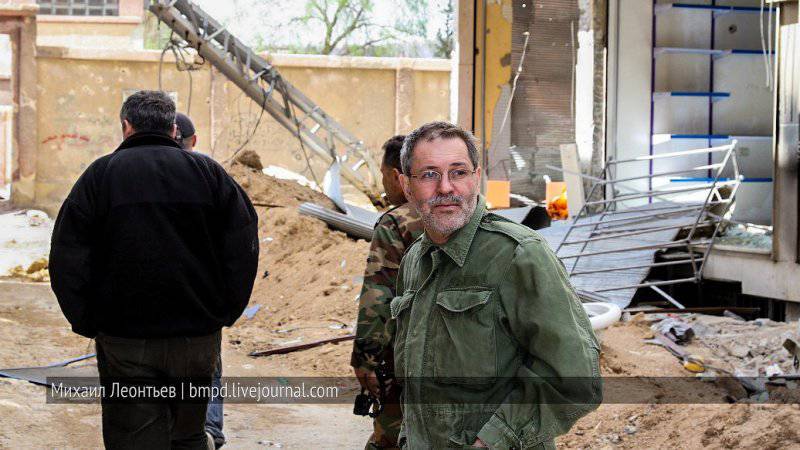
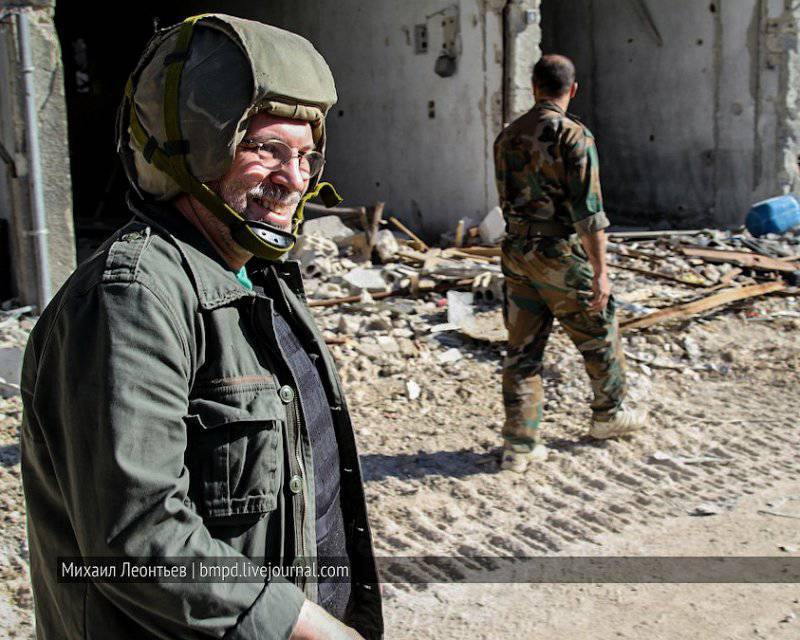
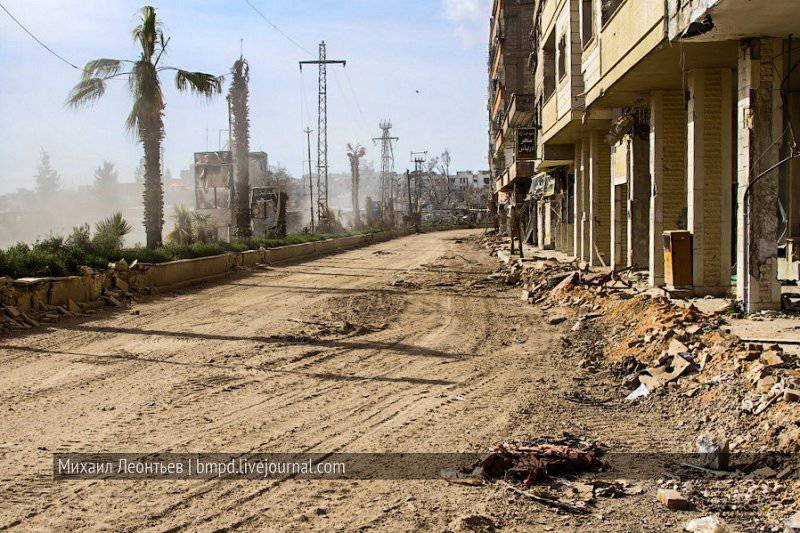
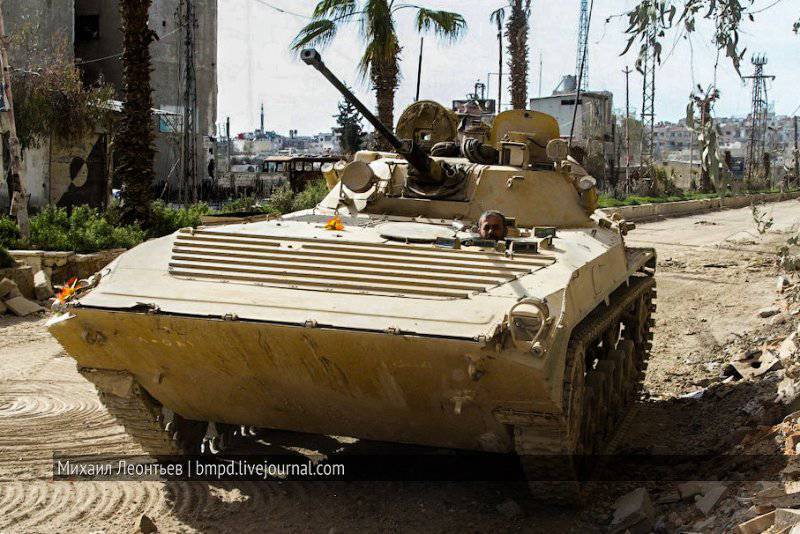
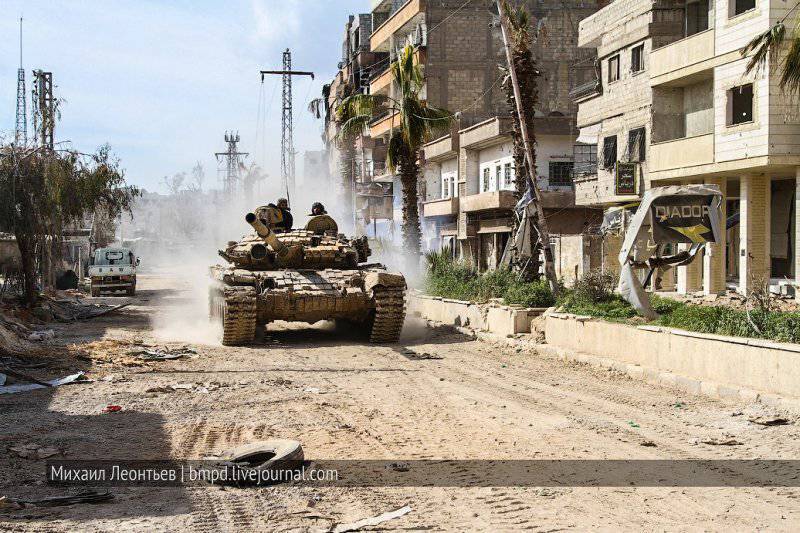
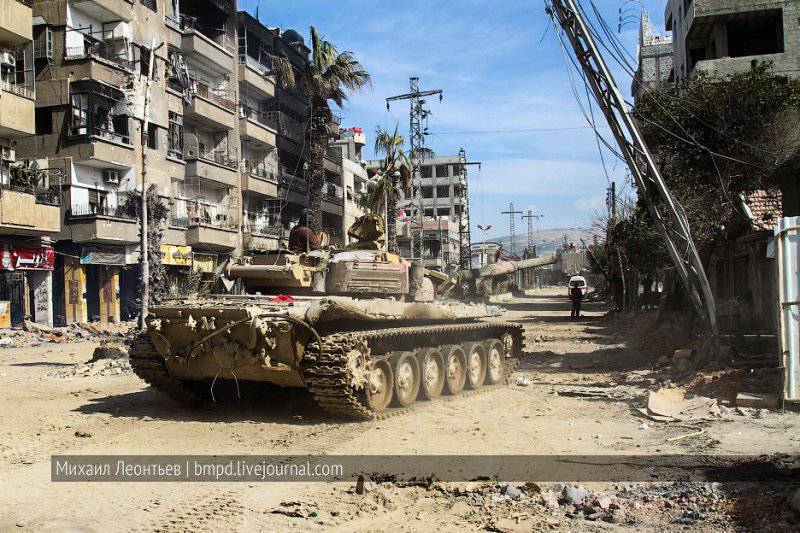
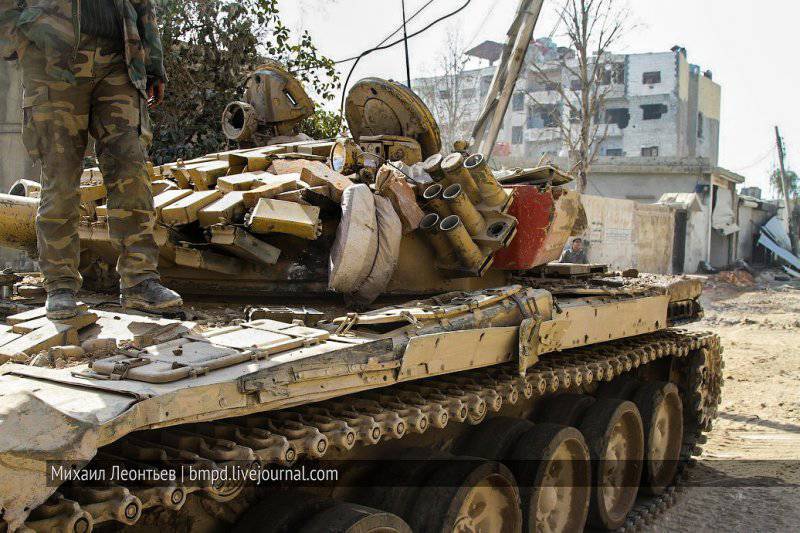
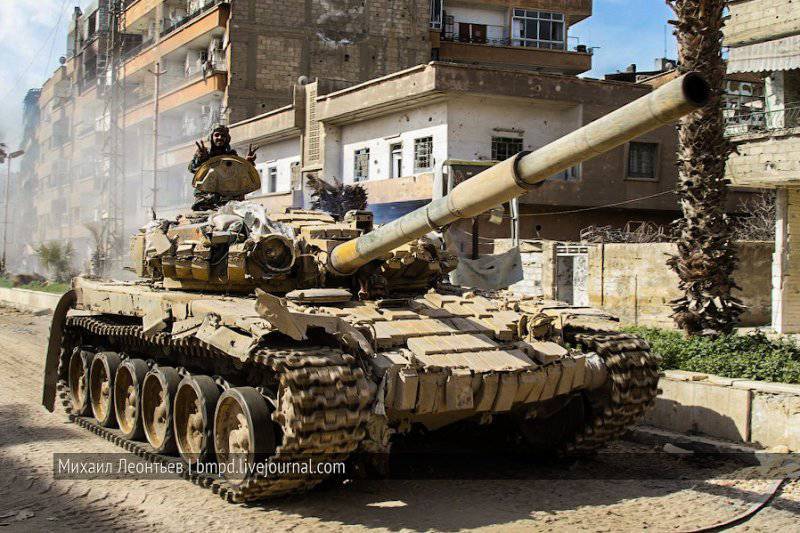
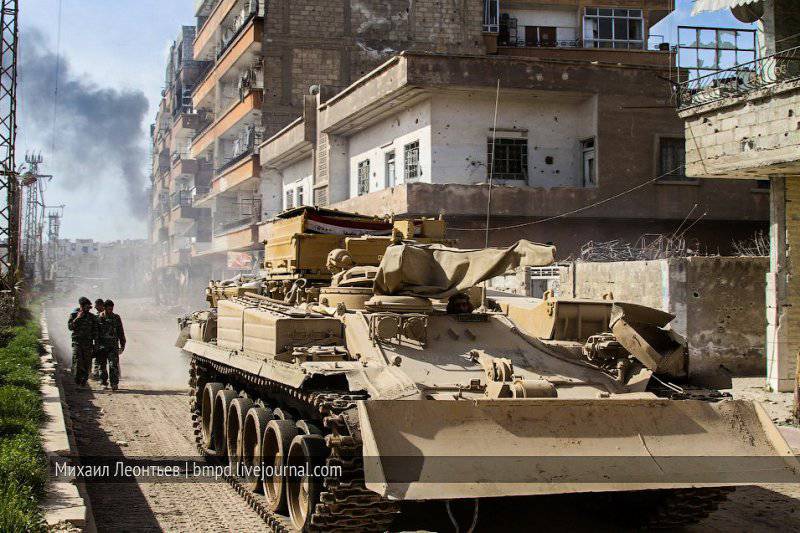
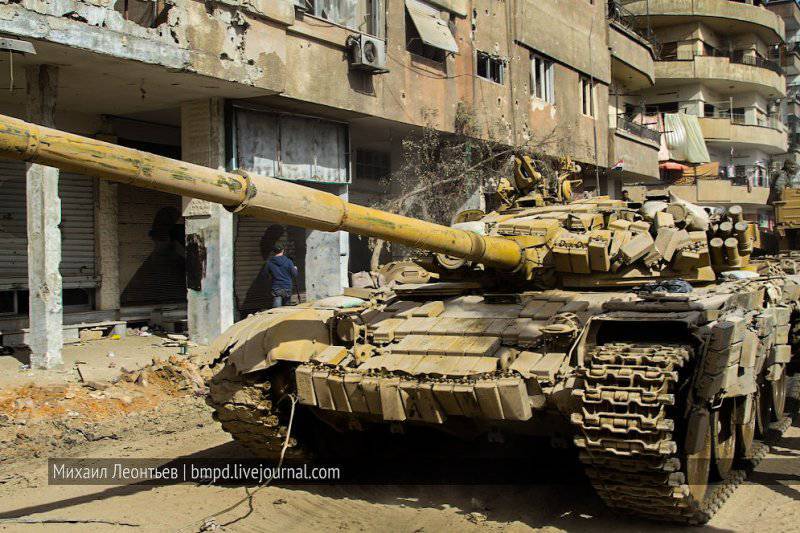
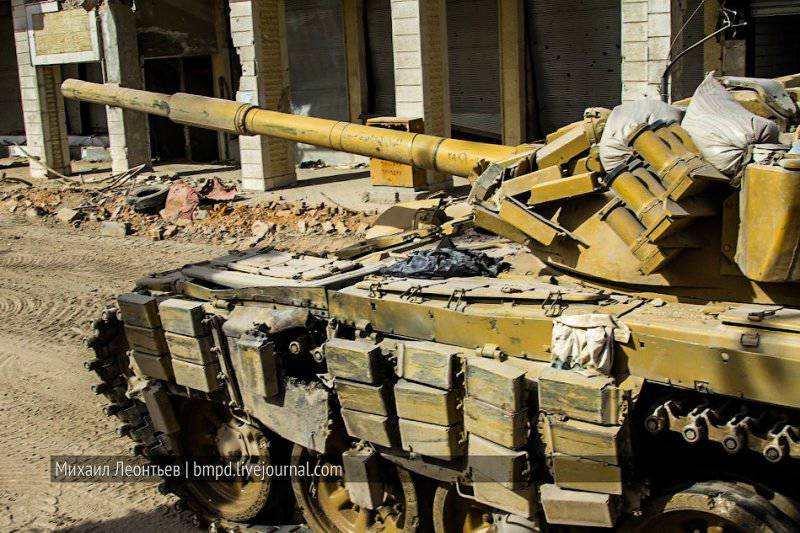
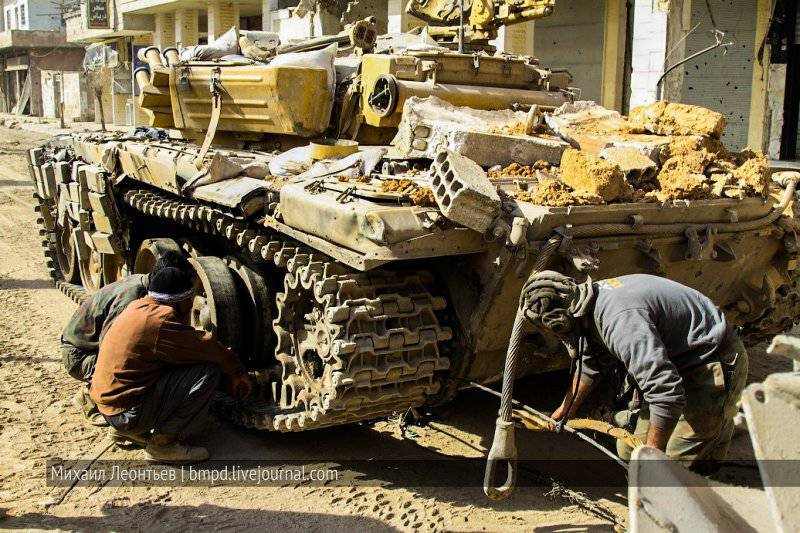
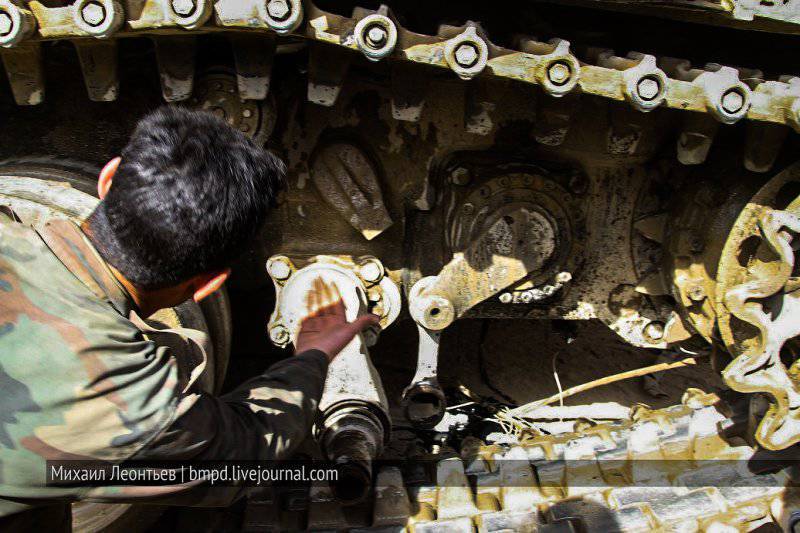
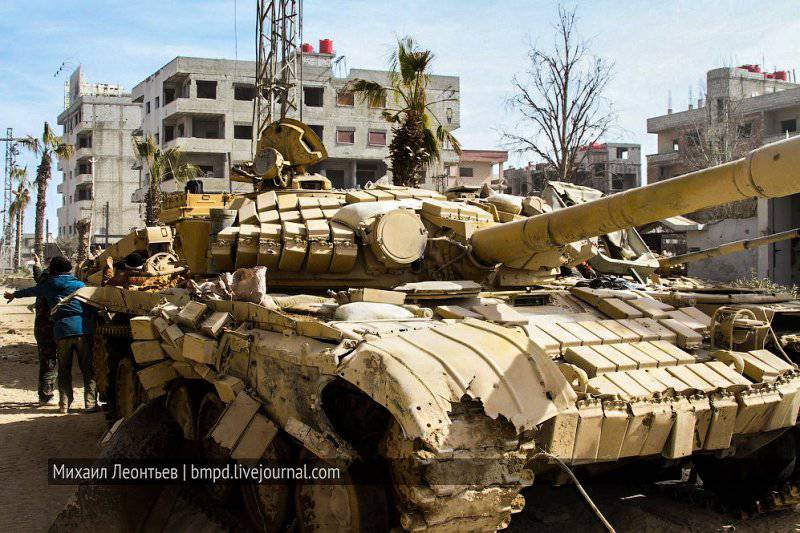
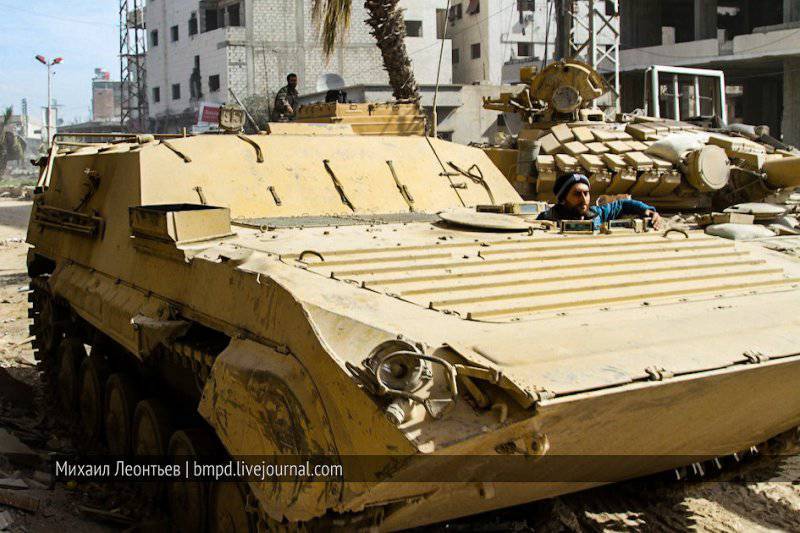
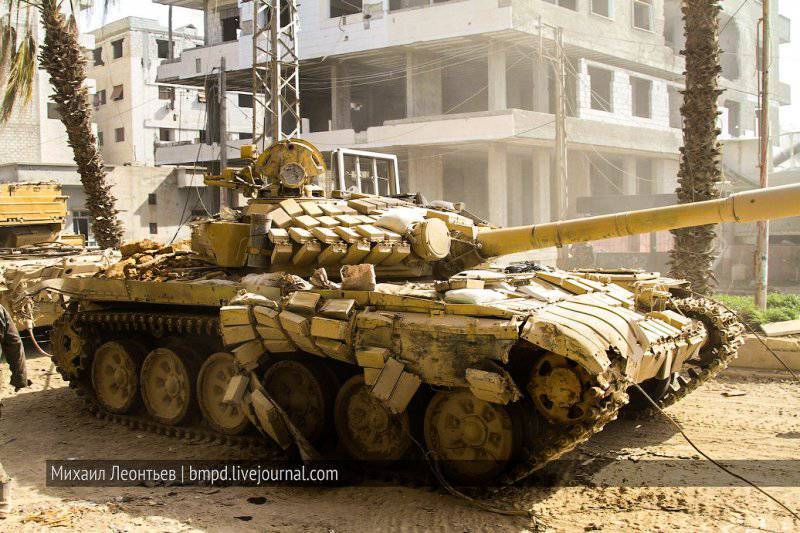
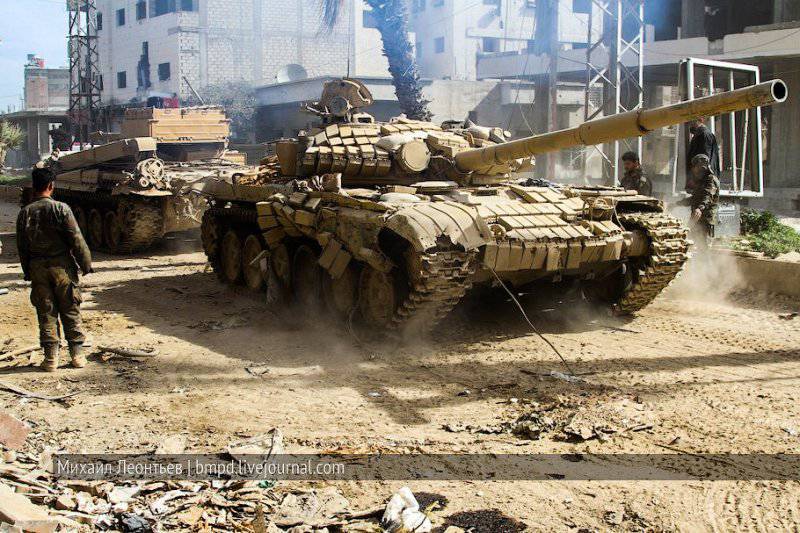
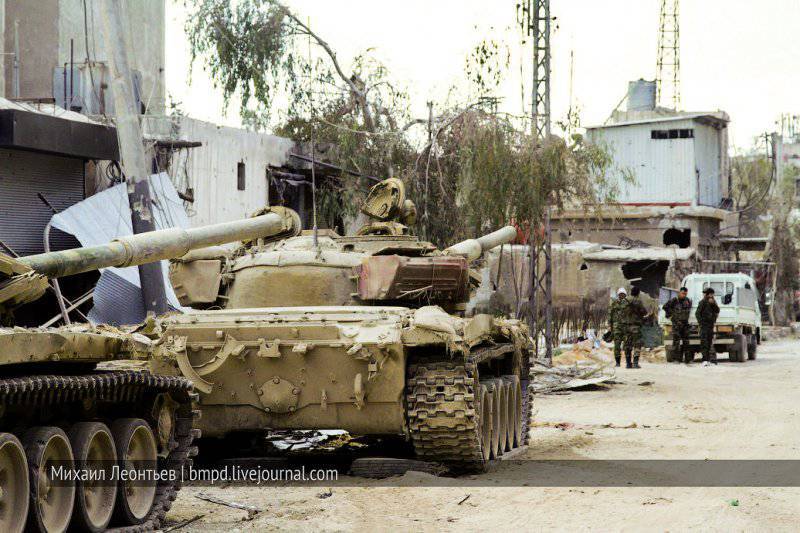
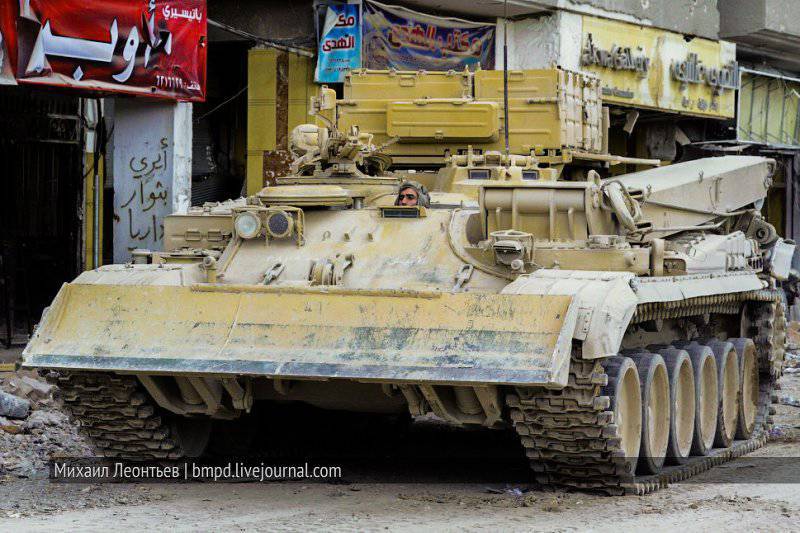
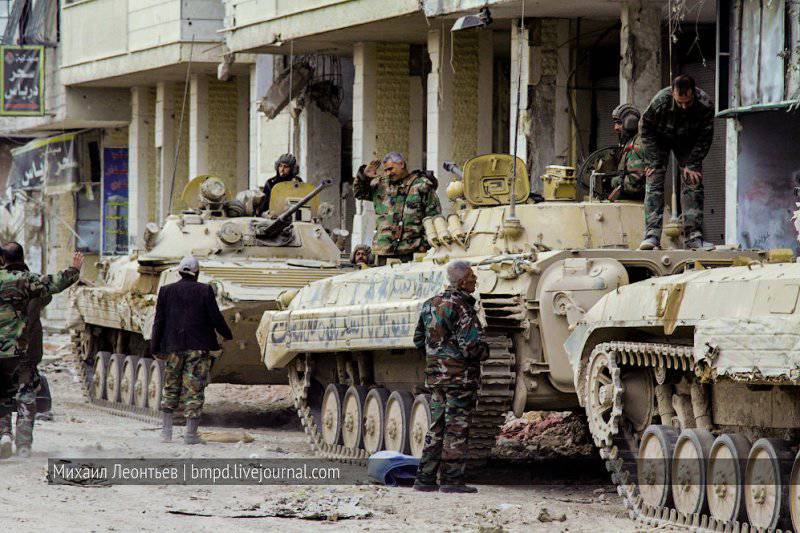
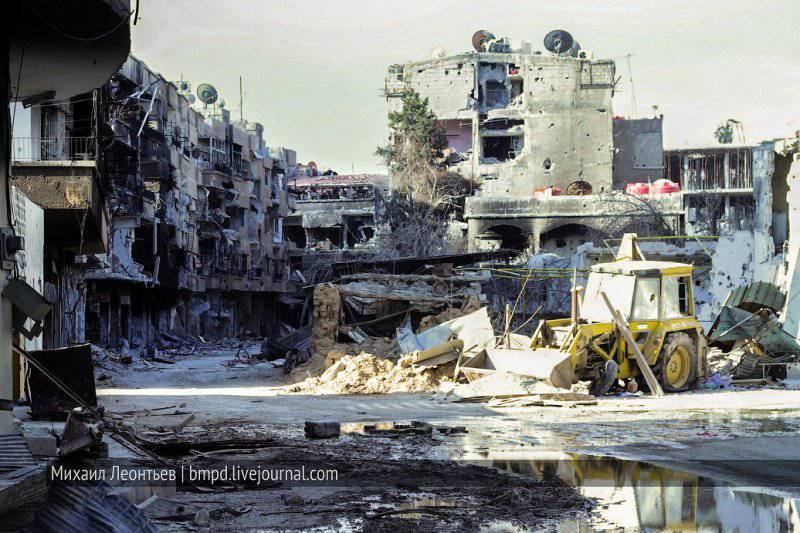
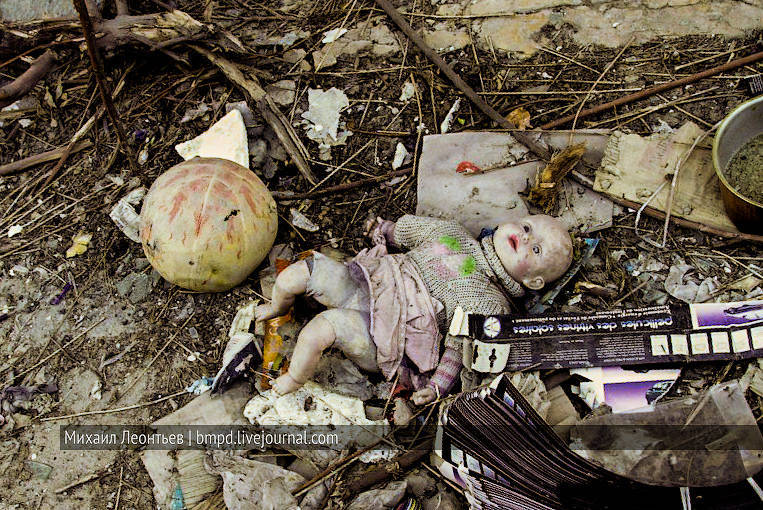
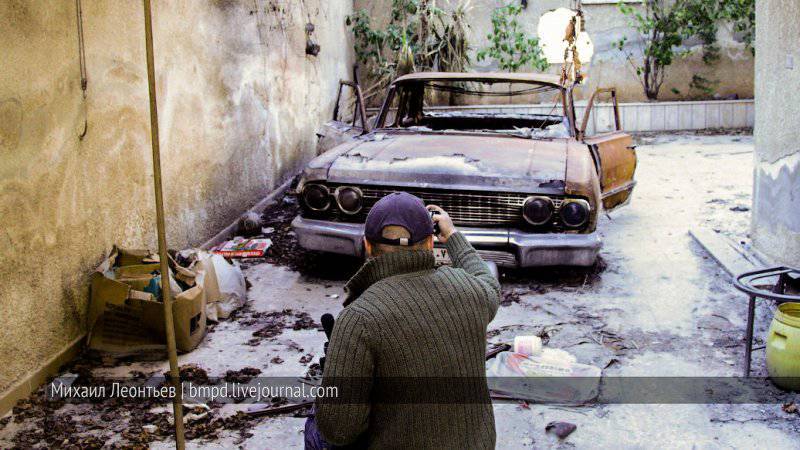
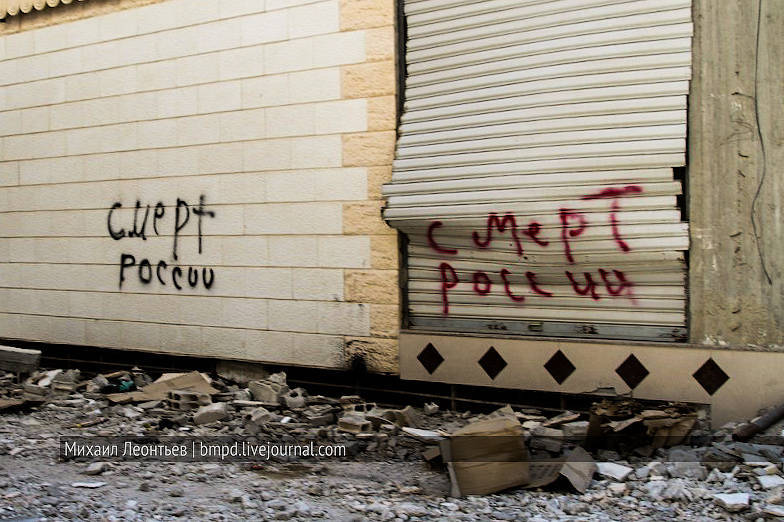
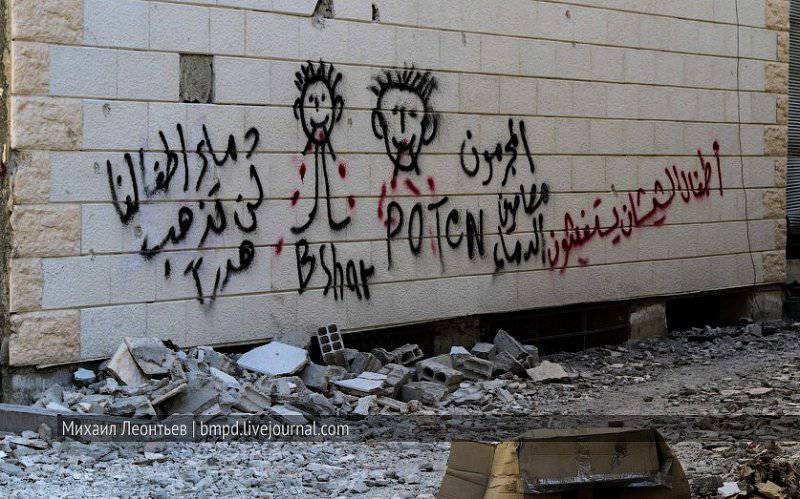
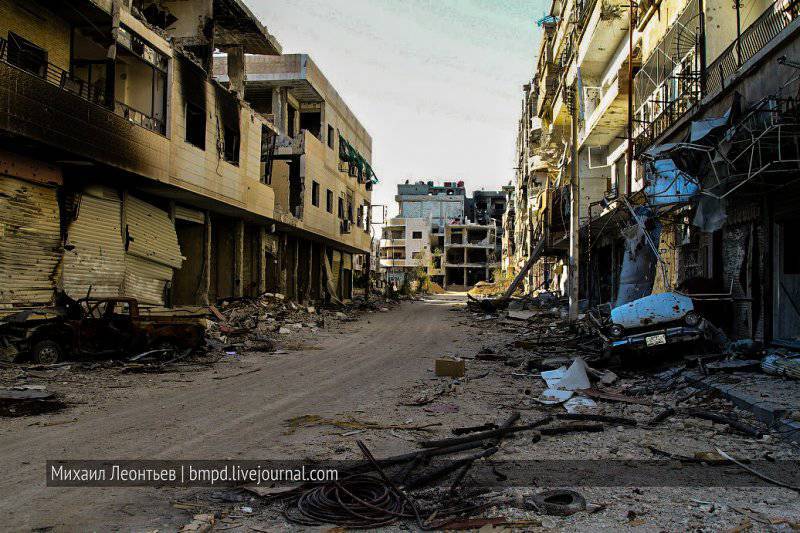
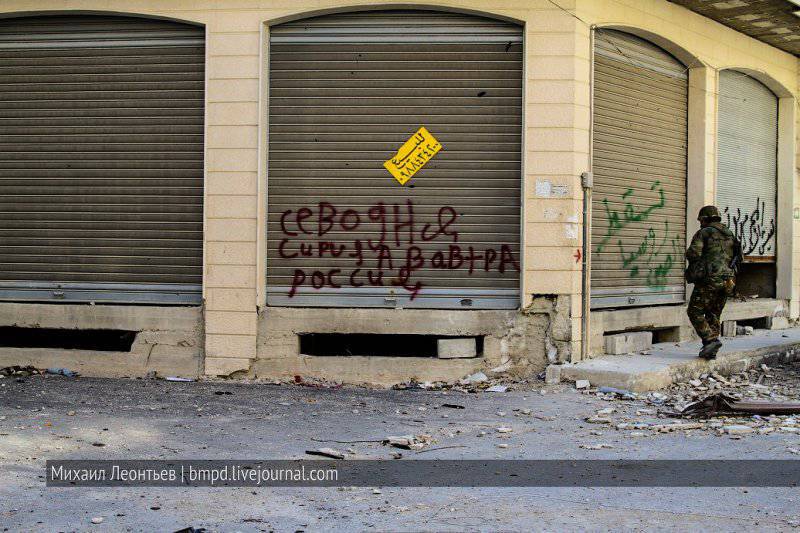
Information